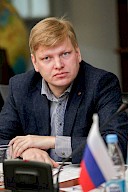Artem Dankov. Relations between China and Central Asian countries: a new stage of cooperation (2022-2023)

Changes in China's policy towards the countries of Central Asia in recent years are largely dictated by its own internal reasons rather than by external factors (in particular, the transformation of Russia's policy towards the region as a result of a new round of the “Ukrainian crisis”). The main reason is a change in China’s approaches to implementing projects within the Belt and Road Initiative. The maximum volume of foreign investment from China to other countries, including those within the framework of the Belt and Road Initiative, occurred in 2016. Since 2017 a steady decline in the volume of Chinese investment abroad had been taking place. Despite some recovery in investment activity after 2020, the volume of investments did not reach the peak values of the mid-2010s. The main reasons for the decline in investment were that China was faced with a slowdown in economic growth, weakening yuan, a trade war with the United States, as well as the low efficiency of projects under the Belt and Road Initiative, many of which were associated with corruption scandals and inefficient use of loans and investments.
At this stage, China has moved to a more balanced and focused approach. Instead of spending massively on new businesses and infrastructure, China has focused on supporting existing projects that are already underway, giving them very serious audits. The coronavirus pandemic, which began in 2020, also made serious adjustments to the development of the Chinese project. On the one hand, due to disruption of logistics supply chains and border closures, a number of infrastructure projects were frozen. On the other hand, the Chinese economy experienced severe stress due to coronavirus restrictions.
The lifting of these restrictions in China at the end of 2022 and the unfreezing of cross-border contacts gave impetus to a new stage in the development of China’s relations with the countries of Central Asia...
Read the paper




